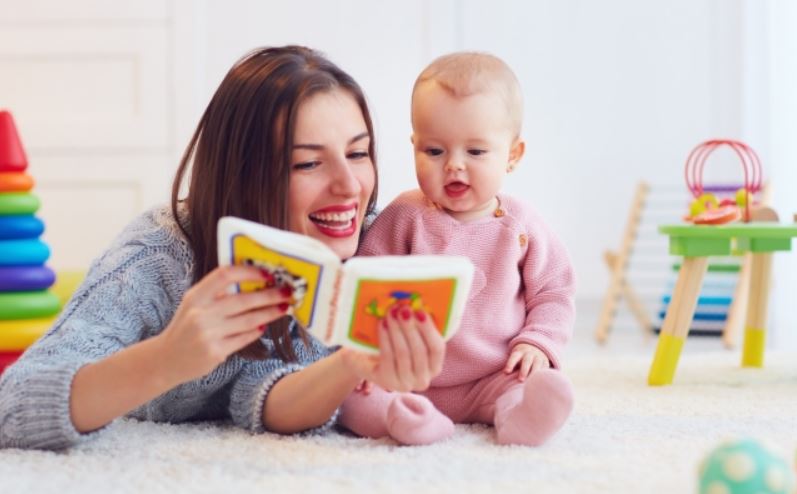According to S. H. Jacob, Ph.D., a former professor of Human Learning and Cognition at the University of Maryland Baltimore County (UMBC) and the renowned author behind Your Baby’s Brain, Intellect, and You, a child’s first formative years are the most critical. The first two initial years are the keystone in developing your child’s cognitive and other necessary abilities. And as parents, it has to be our sole responsibility and priority to provide the best and support our children in this crucial time.
We should make an effort to support and take advantage of this period of rapid growth so that our child has the best chance to develop the thinking abilities such as creativity, curiosity, learning, memory, understanding, problem-solving, and invention, that are essential in today’s and tomorrow’s worlds.
Infants are naturally curious and inquisitive, making it the perfect time to start fostering such skills. Here are some tips on how you, as parents, can help your children to develop the same:
Provide Sensory Experiences
In the initial years, infants learn through their senses. Therefore, providing them with sensory experiences is an excellent way to stimulate their cognitive development and well-being. You can achieve this by exposing your kids and young ones to various tastes, textures, sounds, and smells. Allow them to experiment with different materials through touch and feel, let them play with different sensory toys, listen to music, and help them to discover their surroundings.
Did you know? According to a study published in the Infant Behavior and Development journal, sensory play can improve an infant’s cognitive development by increasing their attention span, memory, and problem-solving abilities. Infants who engaged in sensory play, such as playing with food or various household items, were more likely to develop solid cognitive and mental health and well-being.
Encourage Exploration
It is essential to let your infant explore—with supervision, of course— their surroundings and discover new things in order to develop emotional, social, and physical skills. Not just this interaction with the world will help them to feel and manipulate things, but it will also offer your infant to develop their problem-solving skills and foster their creativity. Here are some ways you could try to help your baby explore more:
- Read books, sing songs, and recite nursery rhymes together aloud.
- Let your baby hold, drop and roll different materials such as dough, leaves, and balls.
- Let your infant play with rattles, bells, and other toys that produce noise.
- Put toys around your baby to encourage movement and help them make use of their hands and other body parts.
Did you know? In a survey by the National Association for the Education of Young Children, 88% of early childhood educators expressed the opinion that exploration is crucial for the cognitive development of infants.
Engage In Play
Play is a crucial component of a baby’s development and a fantastic way to foster their creative potential and cognitive skills. Therefore, participate in play activities with your infant, and encourage them to interact as you play. For instance, you can paint together using your hands or use household items to create a makeshift drum set. For toddlers and youngsters, you can build a fort with sofa cushions and bed sheets to help your children engage in play and foster physical and mental development.
Did you know? In a study published in the journal Early Childhood Education Journal, play was demonstrated as an essential component for cognitive development in infants and toddlers—as it allows them to learn about cause and effect, problem-solving, and spatial reasoning.
Read To Your Infant
Reading to your infant is an excellent way to stimulate their imagination and creativity. Choose books with bright and colorful illustrations, and encourage your infant to interact with the book. Point out different objects in the book and interpret the sounds they make, such as various land animals and birds. This will help your baby better understand their environment, making them more self-assured and receptive to new experiences.
Did you know? According to a study conducted by the American Academy of Pediatrics, the study findings suggest that reading to infants can improve their language development and overall cognitive skills.
Provide Open-Ended Toys
Open-ended toys are those that can be used in a number of different ways and promote imaginative play and creativity. A good example can be building blocks, play dough, and art supplies, such as colors and crayons. These toys allow your baby to use their imagination and creativity and help them develop different ways to interact and play.
Did you know? According to a study by the Urban Child Institute,open-ended toys encourage infants’ imagination and creativity and can aid in the development of their critical thinking abilities and cognitive development.
Allow For Messy Play
Playing in a mess is a great way to inspire your baby’s imagination and stimulate cognitive development. By creating a mess, such as playing with spaghetti, infants can experience and understand various scenes, including taste, smell, and touch. This will let them discover their creative side and further allow them to experiment with different textures and materials.
Did you know? According to a survey conducted by the National Association for the Education of Young Children, 85% of early childhood educators believe that messy play is essential for the development of infant cognitive and other necessary skills.
It is understood that the initial two years of a child’s development are critical. Not only can these determine your child’s future, but it is the prime time for you to use to help your kids acquire the abilities they will need to succeed in the future. If you need more help in doing so, you can always trust Your Baby’s Brain, Intellect, and You, a practical guidebook for parents and caretakers with almost 200 illustrated activities to help your child develop the required and necessary skills.

